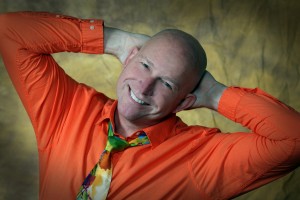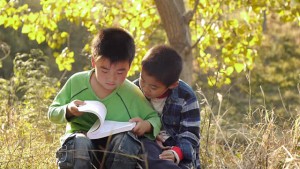 For centuries around the world and in every religion there are storytellers. The Jewish faith relies on its Hasidic stories, the Christians on the stories of Bible, and then there are the Sufi stories told by Nasreddin.
For centuries around the world and in every religion there are storytellers. The Jewish faith relies on its Hasidic stories, the Christians on the stories of Bible, and then there are the Sufi stories told by Nasreddin.
One could almost argue that religion requires the storyteller. It is through the lens of the story that we can see ourselves, laugh at our human foibles and gently correct our actions.
Storytelling is a gift. A good storyteller weaves a tale with enough color and insight to make it believable. And humans are natural critics from an early age. Tell a story to a bunch of children and you’ll quickly figure out whether you have the gift of the gab. They won’t sit still for just anyone.
So storytelling is a gift that is given to the world. But from a Religious Science point of view it can also be a curse.
I too tell stories to make my point. It’s a conscious decision, and when that is happening it’s usually a good thing.
But storytelling is so ingrained in our human DNA that even if we don’t have the flare for drama required to write a blockbuster movie, the truth is we humans tell ourselves stories all the time.
As a Practitioner of Religious Science, my deepest job is not to tell stories, but to unravel them. More than any other treatment, I give treatment for clarity. Why? Because far too often we get stuck in our own stories. We tell ourselves no one loves us, that we’re sick, and broken, and fearful. And we can spend hours sharing those tales with everyone around us until the story is so ingrained it has become our truth. We think we know the answer to what is happening, we think we have the facts, and we think we know how everything is going to turn out. And we don’t.
What we do know is principle. That thought plus feeling equals manifestation. And so the stories that we believe – that we buy into – are the very stories that can trip us up. Often they’re unconscious stories, so it takes longer to unearth what we have done and are continuing to do to ourselves, but largely they are based on stories and the power of our belief.
When we let go of the story, we open pathways to greater possibilities. We let go of agendas, and in doing so are able to hear with greater clarity what is happening in the moment. That provides us with power so that we can respond without the burden of falsehoods tripping us up.
We tell stories to give ourselves a new framework in which to work from. We need to be able to tell stories, but more importantly we need to rid our minds of the belief in the old stories that no longer serve us.
It was only when Dorothy started to recognize her own power that she was able to see the world for what it truly was. The Wizard of Oz revealed for his humanity. The Wicked Witch slayed when her power is perceived to be nothing but hot air. Pierce through the veil of the story, and there is only one thing – love.
When love is the seed of who we are, the story of our lives blooms like a precious flower. And perhaps that too is a story, but it’s one that I willingly cultivate.











